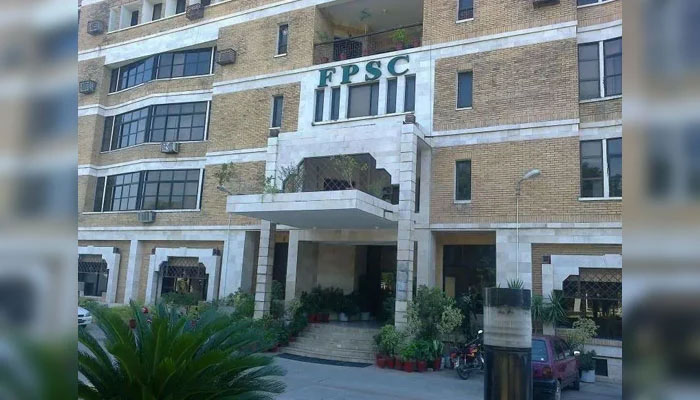Women 40pc of inductions made by FPSC in 5 years
As most of civil servants reach up to Grade-20 and 21 by time they retire, in coming years
ISLAMABAD: A total of 1,090 inductions were made by the Federal Public Service Commission (FPSC) in the Central Superior Services during the past five years, out of which 410 were women.
This is 40 percent of total inductions in civil services, which has increased significantly if compared to women inductions three decades ago. It was below three percent at that time.
As most of civil servants reach up to Grade-20 and 21 by the time they retire, in the coming years, more women will be seen as ambassadors, secretaries and in superior offices of police and other civil services of Pakistan.
The past five-year record reflects Punjab, Gilgit-Baltistan and Azad Jammu and Kashmir have managed to utilise all women seats in the Pakistan Civil Services, while Sindh, Balochistan and Khyber Pakhtunkhwa remained consistent in under-utilising women’s seats in the Civil Services. In the Foreign Service of Pakistan, the data reveals, 82 officers were inducted in the past five years, out of which 52 were male officers and 30 female officers. In the Police Services of Pakistan, 147 officers were inducted in the past five years, out of which only 34 were of women officers. In Pakistan’s Administrative Services, 197 inductions were made, out of which 63 were women, shows the data available with The News. In Sindh, 123 seats for women remained unallocated in the past five years.
In Balochistan, 65 seats and 28 seats from KP for women in civil services remained unallocated in the past five years. A fixed quota of 10 percent was settled for employment of women in the Federal Government Services, including CSS posts in 2007.
-
 Australia To Launch First High-speed Bullet Train After 50-years Delay
Australia To Launch First High-speed Bullet Train After 50-years Delay -
 Meghan Markle Turns To Desperate Bids & Her Kids Are Her ‘saving Grace’: Here’s What They’ll Do
Meghan Markle Turns To Desperate Bids & Her Kids Are Her ‘saving Grace’: Here’s What They’ll Do -
 King Charles Gives A Nod To Sister Anne's Latest Royal Visit
King Charles Gives A Nod To Sister Anne's Latest Royal Visit -
 Christian Bale Shares Rare Views On Celebrity Culture Urging Fans Not To Meet Him In Person
Christian Bale Shares Rare Views On Celebrity Culture Urging Fans Not To Meet Him In Person -
 Ariana Grande To Skip Actor Awards Despite Major Nomination
Ariana Grande To Skip Actor Awards Despite Major Nomination -
 North Carolina Teen Accused Of Killing Sister, Injuring Brother In Deadly Attack
North Carolina Teen Accused Of Killing Sister, Injuring Brother In Deadly Attack -
 Ryan Gosling Releases Witty 'Project Hail Mary' Ad With Sweet Reference To Eva Mendes
Ryan Gosling Releases Witty 'Project Hail Mary' Ad With Sweet Reference To Eva Mendes -
 Teyana Taylor Reveals What Lured Her Back To Music After Earning Fame In Acting Industry
Teyana Taylor Reveals What Lured Her Back To Music After Earning Fame In Acting Industry -
 Prince William Shows He's Ready To Lead The Monarchy Amid Andrew Scandal
Prince William Shows He's Ready To Lead The Monarchy Amid Andrew Scandal -
 Lux Pascal Gushes Over Role In Tom Ford's 'Cry To Heaven': 'I Just Wanted To Be Part Of This Picture'
Lux Pascal Gushes Over Role In Tom Ford's 'Cry To Heaven': 'I Just Wanted To Be Part Of This Picture' -
 Near-blind Refugee Found Dead In Buffalo After Release By US Border Patrol
Near-blind Refugee Found Dead In Buffalo After Release By US Border Patrol -
 Firm Steps In Forcing Andrew’s Hand: ‘Can No Longer Keep A Promise'
Firm Steps In Forcing Andrew’s Hand: ‘Can No Longer Keep A Promise' -
 Kenyan Man Accused Of Recruiting Men To Fight In Ukraine
Kenyan Man Accused Of Recruiting Men To Fight In Ukraine -
 'The Wrong Paris' Star Veronica Long Shares What New Crime Series 'Blue Skies' Is About
'The Wrong Paris' Star Veronica Long Shares What New Crime Series 'Blue Skies' Is About -
 King Charles Remains Immersed In Work Amid Andrew Scrutiny
King Charles Remains Immersed In Work Amid Andrew Scrutiny -
 Bobby J. Brown's Passing Adds To Growing List Of Celebrity Deaths In 2026
Bobby J. Brown's Passing Adds To Growing List Of Celebrity Deaths In 2026




